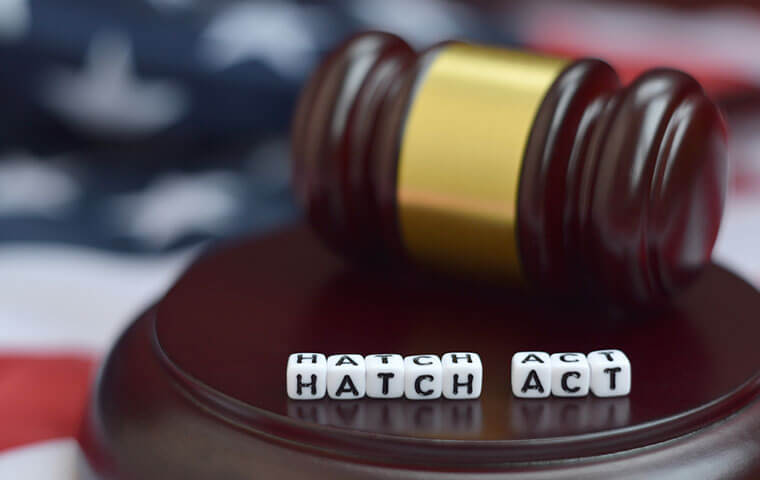 OSC: Prohibited advocacy can also include using words, phrases, or images associated with a specific candidate or party. Image: Mehaniq/Shutterstock.com
By: FEDweek Staff
OSC: Prohibited advocacy can also include using words, phrases, or images associated with a specific candidate or party. Image: Mehaniq/Shutterstock.com
By: FEDweek StaffThe Office of Special Counsel has strengthened several Hatch Act enforcement policies, including setting a “blanket prohibition on tangible items intended only to convey a political candidate or political party message” in the federal workplace.
An advisory noted that it previously OSC has advised that items such as t-shirts, hats, mugs and buttons supporting a political party or partisan political group should be considered as prohibited year-round by the Hatch Act for on-duty employees, but that it also differentiated between items supporting a political candidate worn or displayed on duty before Election Day versus the same items being worn or displayed after Election Day. (The policy did not affect official portraits or pictures of a President doing official business put up by the agency.)
“The former were deemed Hatch Act violations, the latter were not. This distinction is being withdrawn in favor of this advisory that political candidate displays in the government workplace should be avoided year-round,” it says.
It adds: “Presidential candidates in particular increasingly appear closely associated with specific political parties. These associations exist after Election Day as well as before. As a result, the distinction between individual political figures on the one hand and political parties on the other often can be one with little or no practical significance,” it says.
“A year-round prohibition on both candidate and party items in the workplace provides a straightforward and uniform standard that does not depend on federal workers knowing precisely when or whether a particular individual officially has become a candidate for office including reelection,” it says, adding that its new policy applies to “current or contemporaneous political figures as well as political parties.”
The advisory notes that it “can be challenging” to define the boundaries between federal employees’ rights to free speech and the Hatch Act’s restrictions on their partisan political activity, where penalties for violations can range up to and including firing.
“Some workplace speech with an arguable nexus to policy may be impermissible political activity, particularly if it occurs close to or is intended to influence an election. And the activity may be deemed impermissibly political by OSC even if it does not involve unambiguous or express efforts to help a particular candidate or party succeed. At the same time, the use of a word or phrase associated with a candidate or party in a policy discussion does not necessarily violate the Hatch Act particularly when the language at issue has a legitimate connection to federal government programs, proposals, or related debates,” it says.
However, OSC stressed that it “will always find violations of the Hatch Act when on-the-job speech or conduct includes express advocacy (i.e. please support the election of, vote against, donate to, or variations thereof). Beyond that, prohibited advocacy can also include using words, phrases, or images associated with a specific candidate or party, particularly when they appear alone, virtually alone, or gratuitously.”
The OSC further said that it “will also bring to the MSPB appropriate cases alleging Hatch Act violations by individuals who engaged in material misconduct while a federal employee but who have since left government service.” While that seemingly would have no immediate impact, among the potential penalties for a proven Hatch Act violation is debarment from federal employment for up to five years.
Shutdown Meter Ticking Up a Bit
Judge Backs Suit against Firings of Probationers, but Won’t Order Reinstatements
Focus Turns to Senate on Effort to Block Trump Order against Unions
TSP Adds Detail to Upcoming Roth Conversion Feature
White House to Issue Rules on RIF, Disciplinary Policy Changes
Hill Dems Question OPM on PSHB Program After IG Slams Readiness
See also,
How Do Age and Years of Service Impact My Federal Retirement
The Best Ages for Federal Employees to Retire

